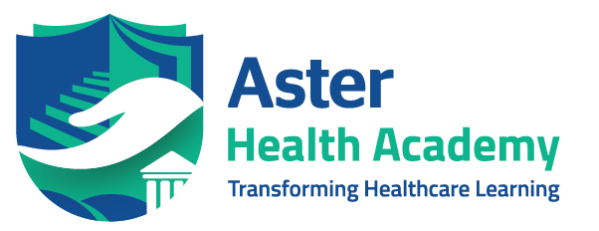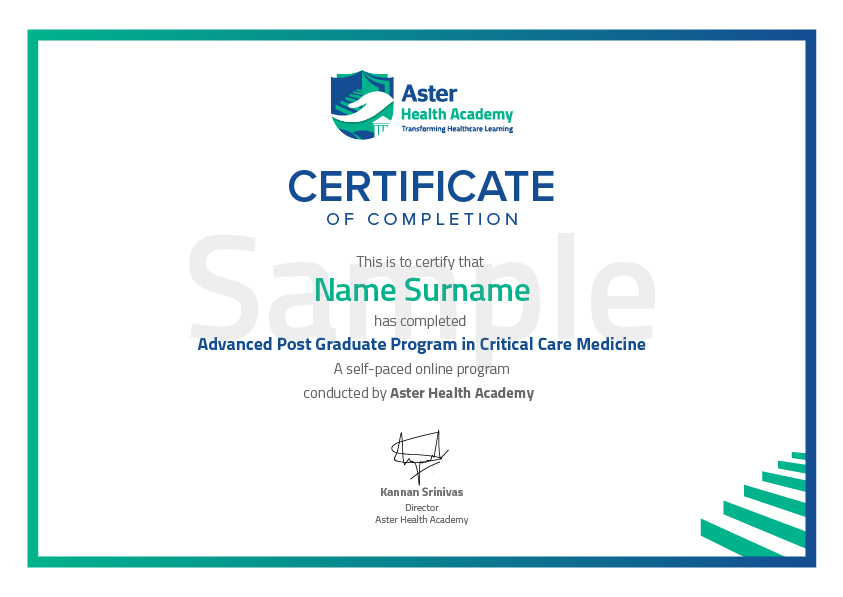
About the course:
Curriculum:
Module 1: Introduction to Critical Care Medicine
Module 2: Basic Life Support (BLS) and Advanced Cardiac Life Support (ACLS)
Module 3: Intensive Care Unit
Module 4: Patient Assessment and Monitoring : Part I
Module 5: Patient Assessment and Monitoring : Part II
Module 6: Glycemic control & Nutritional Management in ICU Patients
Module 7: Cardiovascular Management of Critically ill Patients
Module 8: Mechanical Ventilation
Module 9: Respiratoy System
Module 10: Gastro Intestinal System
Module 11: Nervous System
Module 12: Renal & Genitournary System
Module 13: Blood and Circulation
Module 14: Acid- Base Abnormalitities & Electrolyte Abnormalities
Module 15: Management of Trauma
Module 16: Infections
Module 17: Allergy and poisoning
Module 18: Preventive Practices in Critical Care
Module 19: Ethical Considerations in Critical Care
Who this course is for:
Sample Certificate:
Academic Team
Curriculum:
Module 1: Introduction to Critical Care Medicine
Module 2: Basic Life Support (BLS) and Advanced Cardiac Life Support (ACLS)
Module 3: Intensive Care Unit
Module 4: Patient Assessment and Monitoring : Part I
Module 5: Patient Assessment and Monitoring : Part II
Module 6: Glycemic control & Nutritional Management in ICU Patients
Module 7: Cardiovascular Management of Critically ill Patients
Module 8: Mechanical Ventilation
Module 9: Respiratoy System
Module 10: Gastro Intestinal System
Module 11: Nervous System
Module 12: Renal & Genitournary System
Module 13: Blood and Circulation
Module 14: Acid- Base Abnormalitities & Electrolyte Abnormalities
Module 15: Management of Trauma
Module 16: Infections
Module 17: Allergy and poisoning
Module 18: Preventive Practices in Critical Care
Module 19: Ethical Considerations in Critical Care





